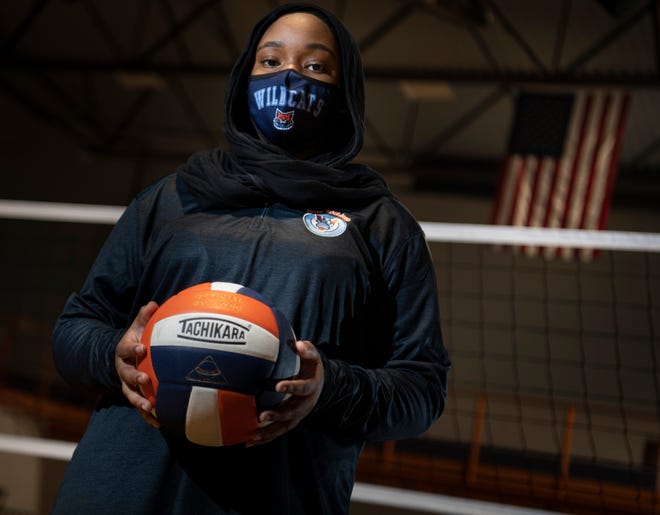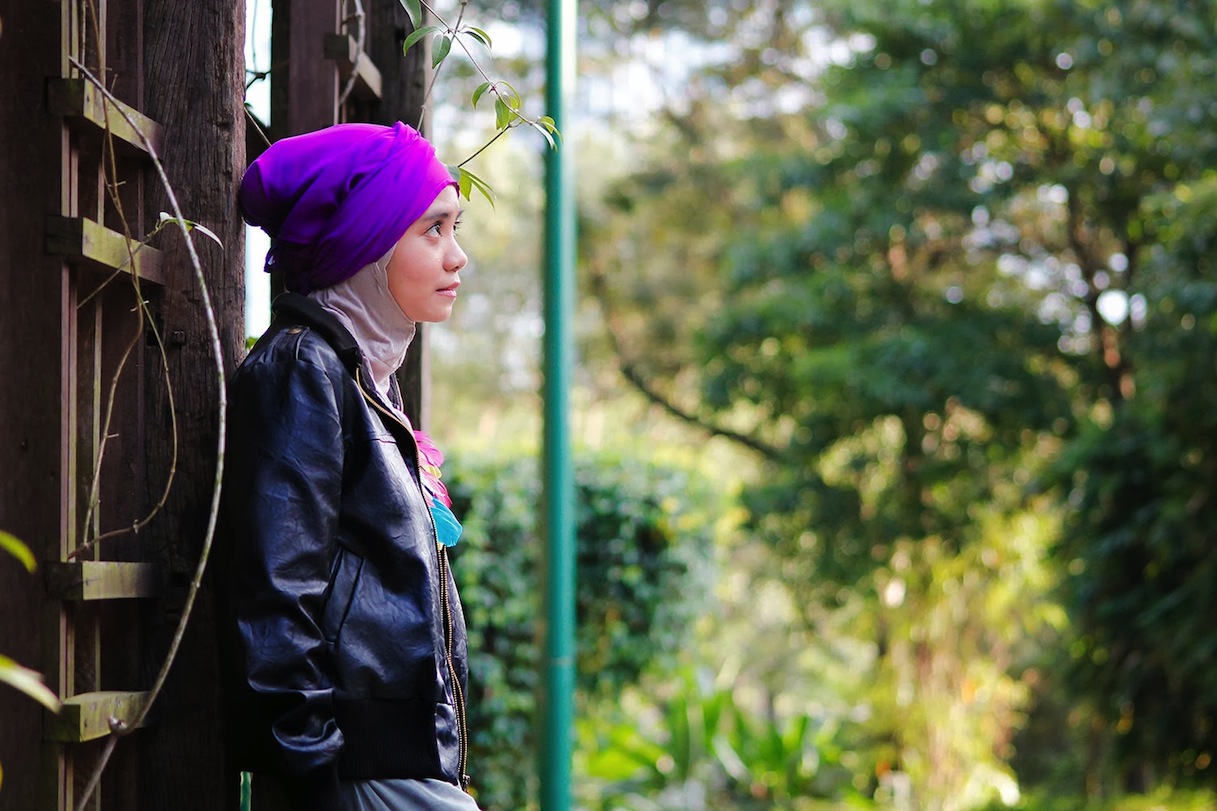Around the world, Muslim women are defying cultural barriers and stereotypes to compete at the highest levels of sports.
In football, fencing, weightlifting, basketball, ice hockey, and more, hijabi Muslim women managed to achieve their dreams while preserving modesty.
However, a young Muslim student in Tennessee’s Valor College Prep was disqualified from playing Tuesday after a referee cited a rule that the athlete needed authorization from the Tennessee Secondary School Athletic Association (TSSAA) to wear a hijab, The Tennessean reported.
📚 Read Also: US Sports Clothing Co. Unveils First Hijab for Muslim Athletes
NFHS (National Federation of State High School Associations) rules state that “hair devices made of soft material and no more than three inches wide may be worn in the hair or on the head.”
The school called on the NFHS and the TSSAA to alter a uniform rule.

Valor College Prep student Najah Aqeel poses for a photo on Friday in Nashville / George Walker IV/The Tennessean
Oppressive Rule
Cameron Hill, athletic director at Valor College Prep, said the school sent an email to the TSSAA on Wednesday asking authorization for their Muslim athletes to wear a hijab.
“While we were able to get approval from the TSSAA and we now have the letter that will allow players to wear hijabs in the future, we feel this rule is discriminatory and is inequitable,” Hill wrote on Instagram.
“We stand in solidarity with all of our scholars and families and their freedoms to express their religion freely.”
No Change
TSSAA Assistant Executive Director Matthew Gillespie approved the exception for the Muslim athlete. However, he did not approve the change in the head cover rule.
“TSSAA has always granted exceptions to any student that wishes to participate with headwear, or other articles of clothing, due to religious reasons,” Gillespie told The Tennessean.
“The rule book states that an exception may be granted if requested by the school administration to the state association.”
On the other hand, Officials with the American Muslim Advisory Council also released a statement questioning the TSSAA rules.
“Why should Muslim girls have an extra barrier to fully participate in sports in Tennessee?” American Muslim Advisory Council executive director Sabina Mohyuddin said in a statement.
“This rule was used to humiliate a 14-year-old student in front of her peers. It was traumatizing to say the least. We have Muslim girls across the state playing sports.
“Religious barriers to playing sports should not exist in this day and age. This rule is akin to telling Muslim girls that they need permission to be a Muslim.”
Several Muslim women have made achievements across the world.
In 2016, 14 Muslim women medaled in the Rio Olympics. This included American fencer Ibtihaj Muhammad, the first Muslim woman to represent the United States on the podium.
However, other sports continue to experience similar discrimination against hijabi women. For example, Indonesia’s judoka Miftahul Jannah could not compete in the Asian Para Games in October 2018 for refusing to remove hijab.


